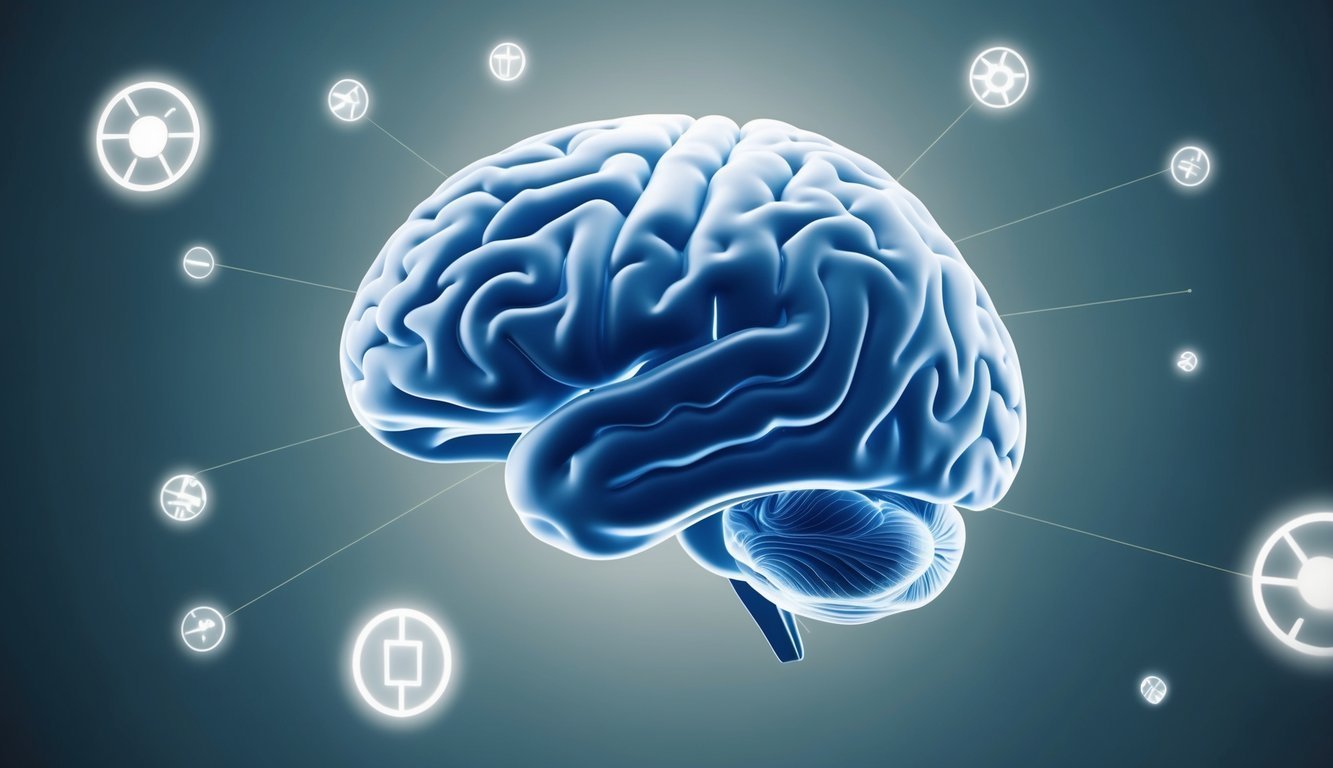PsychNewsDaily Publishers
100 Summit Drive
Burlington, MA, 01803
Telephone: (320) 349-2484
PsychNewsDaily Publishers
100 Summit Drive
Burlington, MA, 01803
Telephone: (320) 349-2484
Memory encompasses encoding, storage, and retrieval processes critical for learning, identity formation, and daily functioning, significantly influenced by brain regions and various cognitive techniques.

Memory is fundamental to human cognition and experience, enabling us to learn, adapt, and navigate our surroundings. Gaining insight into the basics of memory offers valuable perspectives on how we encode and retrieve information.
Memory is the cognitive process involving the encoding, storage, and retrieval of information. It is essential for shaping our identities, guiding our actions, and enhancing our daily lives. The study of memory includes various regions of the brain and cognitive theories.
Memory facilitates learning, problem-solving, and effective decision-making. It allows us to identify familiar faces, remember significant events, and execute complex tasks. Without memory, building relationships, retaining personal histories, and living independently would be difficult.
Psychologists examine memory to unravel its workings, understand why failures occur, and explore ways to enhance it. This research has significant implications for education, therapeutic practices, and cognitive improvement.
Memory encompasses multiple distinct types, each serving a unique purpose:
Sensory memory acts as an initial filter, permitting the brain to sift through relevant information. Then, short-term memory temporarily stores this data, while working memory engages in active processing.
Long-term memory contains subtypes including episodic (personal experiences), semantic (general knowledge), and procedural (skills and habits) memory. These systems work together to enhance our capability to learn, remember, and utilize information effectively.

Memory involves multifaceted brain processes that facilitate the encoding, storage, and retrieval of information. These processes depend on complex neural networks and specific brain structures for efficiency.
Memory encoding represents the first stage in forming a memory. The brain transforms sensory data into a storable format, largely occurring in the hippocampus and medial temporal lobe.
Different types of information activate various brain regions: for example, visual memories engage the visual cortex, while auditory memories involve the auditory cortex. The prefrontal cortex is vital in organizing and categorizing incoming information.
The effectiveness of encoding is influenced by factors such as attention, emotional importance, and repetition. Techniques like elaborative rehearsal, which links new information to existing knowledge, greatly enhance encoding.
Once encoded, memories are stored by altering synaptic connections between neurons. This process, known as consolidation, changes short-term memories into long-term ones.
Initially, the hippocampus stores memories, but over time, they are distributed throughout the neocortex. This redistribution reinforces memories, making them more resistant to fading.
Different memory types are located in various brain regions:
Long-term potentiation, which strengthens synaptic connections, is crucial for memory storage. This process involves changes in neurotransmitter release and receptor sensitivity.
Memory retrieval is the process of accessing stored information when needed. This retrieval activates the same neural networks that were engaged during encoding and storage.
The prefrontal cortex is instrumental in retrieving memories by coordinating the reactivation of dispersed memory traces. Additionally, the hippocampus supports the retrieval of specific details from episodic memories.
Memory retrieval can be aided by contextual cues or related information. The effectiveness of retrieval is influenced by the strength of the initial encoding and the presence of relevant cues.
Occasionally, retrieval can lead to memory reconsolidation, where recalled memories become temporarily flexible and susceptible to alteration, potentially strengthening or modifying existing memories.

Memory is integral to learning and cognitive functions. It allows for the retention of information and skills, enabling knowledge acquisition and the development of cognitive abilities.
Learning heavily depends on memory processes. Attention and encoding are crucial for transferring information into short-term memory, while various rehearsal methods facilitate the transition to long-term storage.
Chunking simplifies complex information into manageable units, making it easier to remember. Practice and review strengthen neural connections, boosting retention and recall.
Connecting new concepts to existing knowledge aids comprehension, a process called elaboration that fosters meaningful associations.
Memory is vital for numerous cognitive functions. It enhances problem-solving by providing access to pertinent information and past experiences.
Working memory enables real-time information manipulation, essential for tasks such as mental arithmetic and language processing.
Episodic memory allows individuals to remember past experiences, contributing to self-identity and decision-making, while semantic memory stores factual knowledge, aiding reasoning and conceptual understanding.
Declines in memory can affect cognitive functions across several areas. However, maintaining a healthy lifestyle and engaging in mentally stimulating activities can help preserve cognitive abilities as one ages.

Memory challenges can significantly disrupt daily life and cognitive function. Various factors, from normal age-related changes to severe neurodegenerative diseases, contribute to memory issues.
Stress and anxiety can hinder memory formation and recall. Additionally, forgetfulness tends to increase with age, particularly affecting short-term memory and the capacity to learn new information.
Lack of sleep adversely impacts memory consolidation. Insufficient rest can impair the ability to retain and recall information.
Some medications may have side effects that affect memory. It’s essential to speak with a healthcare professional if memory issues emerge after the initiation of new treatments.
Nutritional deficiencies, particularly in vitamins B12 and D, can lead to memory problems. A balanced diet is crucial for maintaining brain health and cognitive functions.
Alzheimer’s disease is the leading cause of dementia, marked by progressive memory loss and cognitive decline. Initial symptoms may include difficulty remembering recent conversations and events.
Vascular dementia arises from diminished blood flow to the brain, often due to strokes or small vessel disease, impacting planning, reasoning, and memory.
Lewy body dementia affects cognitive abilities and motor skills, with symptoms including hallucinations and fluctuating alertness, alongside memory challenges.
Amnesia can result from brain injuries, specific medications, or psychological trauma, affecting the capacity to form new memories or retrieve existing ones.
Post-traumatic stress disorder (PTSD) may cause intrusive memories and concentration issues. Treatment typically involves therapy and medication to alleviate symptoms.

Enhancing and safeguarding memory is vital for cognitive wellbeing. Numerous strategies and lifestyle choices can significantly influence one’s capacity to effectively form, maintain, and retrieve information.
Several methods can enhance memory performance. Techniques like mnemonics, visualization, and chunking assist in organizing information for easier access.
Mental exercises, such as crossword puzzles and acquiring new abilities, stimulate cognitive functions, while regular reading boosts semantic memory and vocabulary retention.
Creating effective retrieval cues by connecting new information to existing knowledge also enhances recall. Engaging multiple senses during learning strengthens memory formation.
Spaced repetition, reviewing information at increasing intervals, supports long-term retention. Self-testing through active recall reinforces memory consolidation.
Physical activity benefits brain health by promoting blood circulation and enhancing neuroplasticity—the brain’s capacity to forge new connections and adapt. Aerobic exercises are particularly effective for memory enhancement.
Adequate sleep is vital for memory consolidation, allowing the brain to store and recall information. Consistent sleep routines foster optimal cognitive performance.
A healthy diet rich in omega-3 fatty acids, antioxidants, and essential vitamins supports brain health. Hydration is also critical for maintaining cognitive function.
Managing stress through practices like meditation can enhance attention and memory. Building social connections and engaging in mentally stimulating activities further bolster cognitive resilience.
Limiting alcohol intake and avoiding smoking contribute to the preservation of memory function. Regular medical check-ups can help identify potential health issues affecting memory.
“`